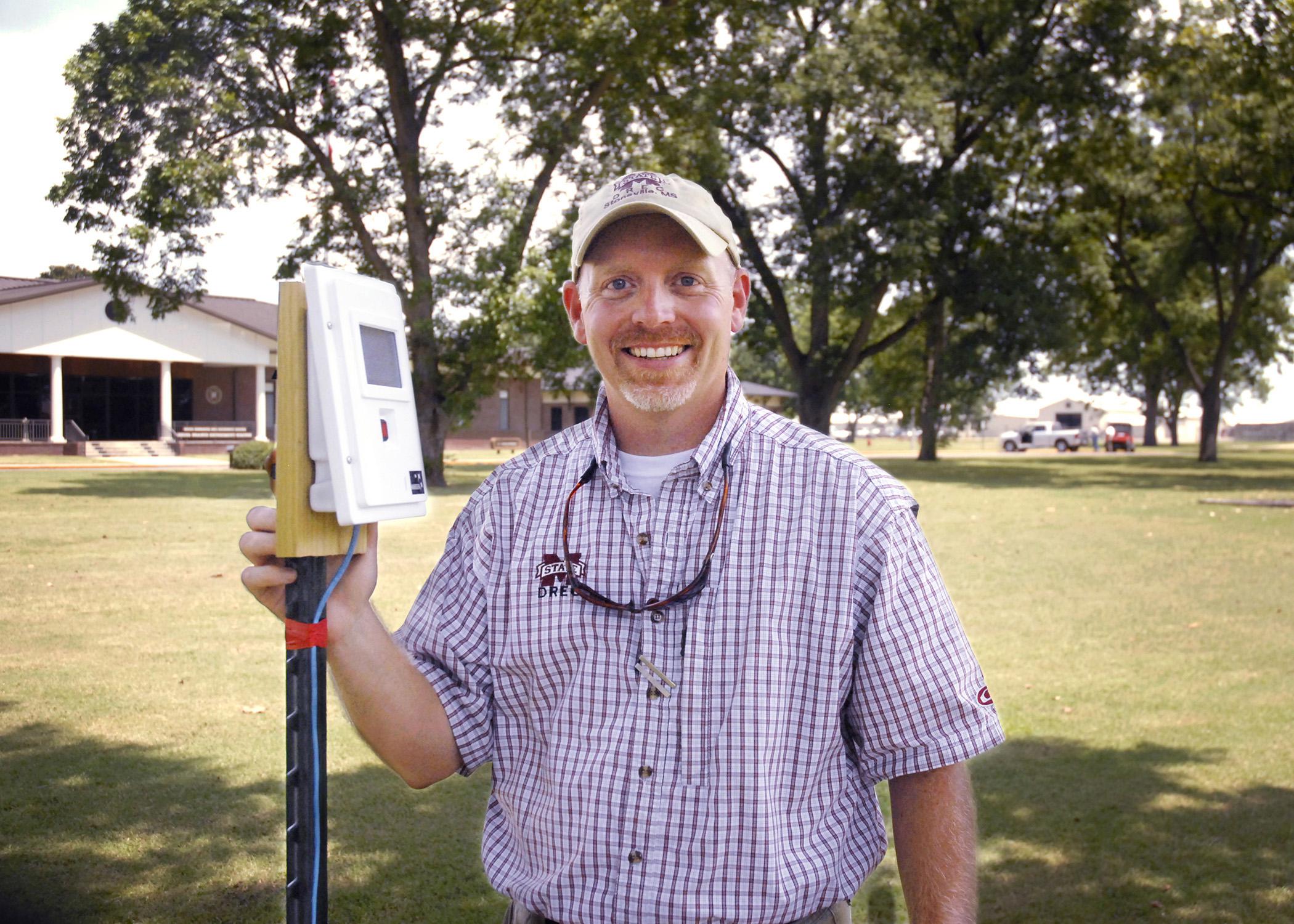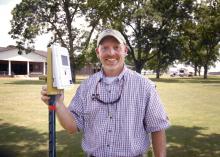Information Possibly Outdated
The information presented on this page was originally released on August 22, 2013. It may not be outdated, but please search our site for more current information. If you plan to quote or reference this information in a publication, please check with the Extension specialist or author before proceeding.
MSU helps farmers irrigate efficiently
STONEVILLE – When it comes to irrigating crops, farmers are like Goldilocks.
“They don’t want too much water; they don’t want too little water; they want it just right,” said Jason Krutz, irrigation specialist with Mississippi State University’s Delta Research and Extension Center.
Krutz explained that too much irrigation can damage a crop, drive costs up and reduce underground water supplies.
“Most producers simply guess when to irrigate and when to stop, but you can’t just look at a field and know if it has enough water. Some crops suffer water shortages even when they have access to irrigation,” he said. “There is evidence that by using water sensors to time irrigations properly, farmers can reduce water use by up to 40 percent.”
Krutz said MSU scientists want to help farmers become efficient irrigators. Some of the tools researchers with the Mississippi Agricultural and Forestry Experiment Station have studied include the Mississippi Irrigation Scheduling Tool, evapo-transporation monitors and thermal canopy sensors.
“We believe that soil moisture sensors are the tools producers are most likely to adopt,” he said. “Using them could mean starting as much as three weeks later than they would normally start irrigating. That would eliminate two irrigation events and save about $20 per acre.”
Krutz said sensors cost about $500 per set. Even that relatively minor investment can make significant changes in the way farmers irrigate. One set of sensors can provide feedback on up to 100 acres at a time.
“I’ve found people who thought they knew everything about irrigation say they have changed the way they do things after adding the sensors to their fields,” he said.
Krutz said eliminating unnecessary irrigation not only results in water and fuel savings, but also helps the pumps last longer.
Washington County farmer Bubba Simmons of Simmons Planting Co. in Arcola said 2013 is his first year to use the water sensors on corn and soybean fields.
“We have been irrigating fields for a long time, but this is the first year we can know the exact moisture content of the soil,” he said. “In the past, we used a soil probe or shovel or visual inspections to decide when to irrigate and when to stop.”
Simmons, a 1988 graduate of MSU, said he has discovered times when he would have over- and underirrigated if not for the sensors.
“Next to land, water is our most valuable resource, so conserving water is incredibly important,” he said. “These devices let us know a truer picture of the moisture content in the soil. They have been key in determining irrigation timing this year.”
Simmons said 2013 had an unusually mild June and July with more rain than normal.
“If by using them you can avoid one irrigation event, you will be saving money and water,” he said. “The sensors could pay for themselves by just cutting out one irrigation.”
In addition to cost savings and water conservation, increased yields are another possible benefit of more efficient irrigation, Simmons said.





